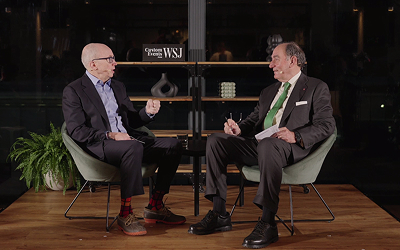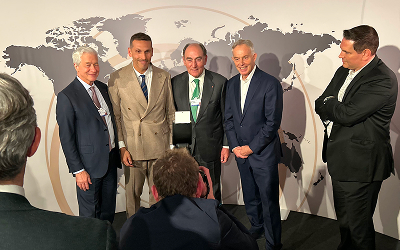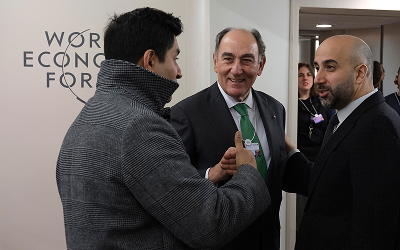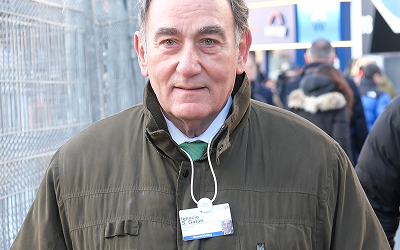Word Economic Forum: Davos 2026
Davos Forum 2026: A Spirit of Dialogue
The Davos Forum 2026 has returned to the Swiss Alps to address the world's most pressing global challenges and with confidence in its ability to drive forward-looking solutions.
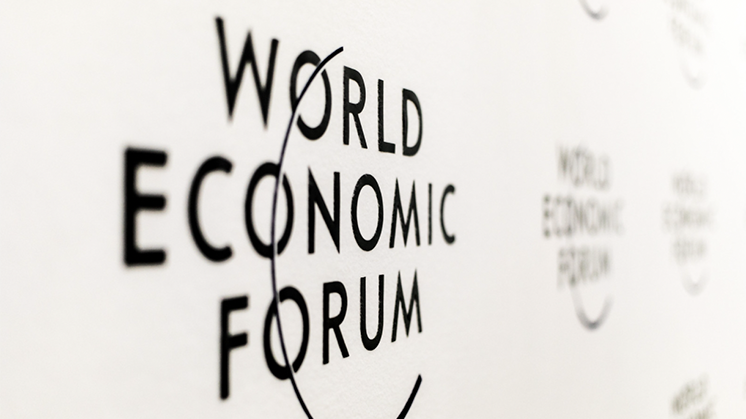
From 19 to 23 January, the Swiss town of Davos is hosting the Annual Meeting of the World Economic Forum 2026 under the theme “A Spirit of Dialogue”. The event brings together some 2,500 heads of state and government, business CEOs, civil society leaders, global media and youth leaders from Africa, Asia, Europe, the Middle East, Latin America and North America – and this year was no different. The aim was to work together to rebuild trust and shape the principles, policies and partnerships needed to meet the challenges of 2026.
The growing complexity of the global context, marked by greater fragmentation and accelerated innovation, highlights the need for impartial and reliable spaces that foster constructive dialogue. In this context, the 56th edition of the Davos Forum has established itself as an essential forum for the convergence of leaders from various sectors and regions, with the aim of strengthening trust, broadening perspectives and addressing common challenges.
Among the central themes of the meeting is the technological paradigm shift, driven by advances in artificial intelligence, quantum computing, biotechnology and state-of-the-art energy systems. These innovations are transforming the way we live and work, while generating new engines of growth. To ensure that this progress is resilient and equitable, the need to expand access to emerging markets, invest in the development of professional skills in line with a rapidly changing workforce, and promote sustainable solutions is emphasised.
As an international company that aspires to improve the future and stimulate economic growth through innovative technological and business proposals, the Iberdrola Group was a member of the World Economic Forum and its executive chairman has become one of the regular voices at this institution's events. As such, Ignacio Galán was one of the participants invited this year to give his views on the direction of global economic growth.
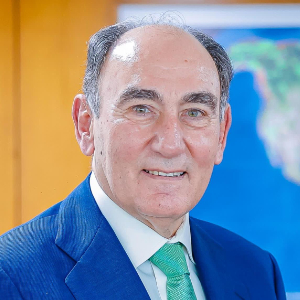
"All major inventions and growth sectors depend on electricity. That is why electrification with renewables, grids and storage, in addition to being a technological revolution in itself, enables all others."
Ignacio S. Galán, Iberdrola's Executive Chairman
Iberdrola, at the Davos Forum 2026
At the 2026 edition, Ignacio Galán, executive chairman of the Iberdrola Group, highlighted the importance of investing in networks to meet growing global demand for electricity. In his opinion, electrification "is unstoppable" and "electricity grids will be a vector for global leadership and competitiveness".
Iberdrola's firm commitment to electrification is supported by the constant emergence of new uses for this type of energy with the growing implementation of data centres and electric mobility, among other technologies. This trend will increase, raising global electricity demand by up to 50% by 2035 and doubling by 2050.
Another reason for renewing the network infrastructure, as well as its development, is energy autonomy and resilience for different countries. "We now need networks capable of absorbing all that energy and delivering it to consumers and industries in a safe and competitive manner," said the executive chairman, warning that without sufficient networks and interconnections, electrification will not be able to advance.
Galán emphasised the needs of countries such as the United States, where urgent upgrades are required for the network infrastructure in states such as New York. Aware of this challenge, Iberdrola plans to allocate €58 billion to the development of electrical networks, with a particular focus on the United Kingdom and the United States, according to its Strategic Plan 2025-2028.
Core themes of Davos 2026
As every year, the Davos summit focuses on a series of themes with the aim of responding to current issues. Collaboration is needed on three fundamental levels: towards the future, within societies and between nations.
The forum focuses on addressing crucial issues that will drive the future through five main interconnected themes:
- How can we cooperate in a more contested world? Growing competition between major powers, social polarisation and the questioning of traditional rules and alliances have increased the volatility and complexity of the global environment. In this context, geo-economics takes on a central role in decision-making, forcing organisations to develop greater geopolitical intelligence to adapt to changing risks. Against this backdrop, it is essential to strengthen cooperation between businesses, governments and civil society, integrating public-private efforts to promote common solutions and generate a sustainable impact.
- How can we better invest in people? Reskilling and upskilling will be key to building a resilient workforce, given the transformation of a significant portion of employment driven by artificial intelligence and the rapid growth of the working population in emerging economies. At the same time, lack of access to essential health services and underfunding in health care highlight the need to strengthen social resilience. In the face of these challenges, cooperation between businesses, governments and civil society is essential to drive joint solutions and generate greater impact.
- How can we access new sources of growth? The global economy is expected to grow only modestly in a context of trade tensions, political uncertainty and limited fiscal and monetary room for manoeuvre, with weak trade momentum, high core inflation and record levels of debt. Against this uncertain backdrop, future growth will depend on the ability to boost productivity through innovation and on economic policy aligned with society. In this context, cooperation between companies, governments and civil society is essential to generate shared solutions and deliver sustainable impact.
- How can we implement innovations on a large scale and in a responsible manner? Artificial intelligence is profoundly transforming business activity and is projected to be a key driver of global economic growth, mainly through increased productivity. To harness its potential, it will be essential to ensure responsible and sustained adoption, along with investments in frontier technologies. At the same time, the energy transition requires urgent progress in the implementation of new technologies, the modernisation of infrastructure and the expansion of access to innovation, especially in emerging markets. In the face of these challenges, cooperation between businesses, governments and civil society is essential to drive effective and sustainable solutions.
- How can we create prosperity without exceeding planetary boundaries? Climate change and nature loss are having significant impacts on infrastructure, food systems and the global economy, increasing risks but also opening up opportunities for sustainable growth. The transition to nature-positive business models can drive economic and social development, demonstrating that environmental protection is compatible with growth. To achieve this, it is essential to invest in regenerative production systems and strengthen cooperation between businesses, governments and civil society in order to generate integrated, long-term solutions.
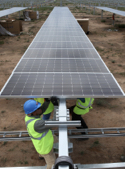
World leader in renewable energy
The company will invest 34 billion euros in renewable energies until 2025
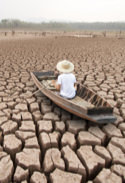
An example in the fight against climate change
Iberdrola is fully aligned with the emission reduction targets of the Paris Agreement
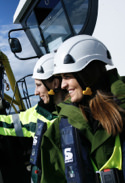
We support green employment
The transition to a decarbonised economy is not only key to slowing down climate change

At the forefront of digital transformation
The leading private utility in Europe and second in the world in terms of R&D investment

Diversity and inclusion, our strategic priority
The company is committed to creating a diverse and inclusive environment
All the information about Davos and the World Economic Forum
What is Davos and the World Economic Forum?
The Davos conference is the annual meeting of the World Economic Forum  External link, opens in new window. (WEF), an independent, non-profit organisation dedicated to public-private sector cooperation. Headquartered in Geneva, Switzerland, the institution involves the most important political, business, cultural leaders, etc. from all over the world to shape the global agenda.
External link, opens in new window. (WEF), an independent, non-profit organisation dedicated to public-private sector cooperation. Headquartered in Geneva, Switzerland, the institution involves the most important political, business, cultural leaders, etc. from all over the world to shape the global agenda.
Where is Davos located?
Davos takes place at Davos-Klosters, a tourist resort situated in the high Alps in Switzerland. It is one of the biggest winter sports areas in Europe and the continent's highest-lying town.
What is the purpose of Davos?
The aim of the Davos summit is to bring together the top world leaders to debate the most pressing global problems and seek solutions to these challenges. And they do it in the Davos spirit, based on interdisciplinary, informal and direct interaction among peers.
Where and when is the Davos Forum 2026?
The 2026 World Economic Forum in Davos will be held from 19 to 23 January 2026, this time under the theme ‘A Spirit of Dialogue’.
What was Davos 2025 all about?
The focus of the 2025 agenda – under the slogan ‘Collaboration for the smart era’ – sought to promote forward-looking solutions and address the most pressing global challenges through public-private cooperation.
How many Davos Forums have been held?
The Davos conference in 2026 will be the 56th edition of this annual meeting.
What are the goals of the World Economic Forum?
The mission of the World Economic Forum is to serve as a platform for dialogue and cooperation between public and private institutions from all over the world. This mission is based on the stakeholder theory, according to which organisations, of whatever kind, are answerable to all sectors of society. So, a company must not just let itself be guided by the interests of its shareholders, but also by those of its employees, customers, suppliers, local communities and society in general.
Who is the creator of the World Economic Forum?
The creator of the World Economic Forum is Klaus Schwab, Swiss economist, professor and businessman.
How did the World Economic Forum come about, and how has it developed?
In 1971, Klaus Schwab founded in Geneva what was originally called the European Management Forum, a non-profit foundation that brought together business leaders from the entire continent in its annual meeting in January. These first conferences aimed to help European corporations to keep up to date with the management practices of the United States, and to develop and promote the management approach based on the stakeholder theory.
In 1973, due to the collapse of the Bretton Woods exchange system and the Arab-Israeli war, the Forum widened its focus to social matters and, at Davos 1974, political representatives were invited for the first time. Two years later, a membership system was introduced which permitted the entry of 1,000 leading companies from all over the world. The forum started to work with China to stimulate economic reform policies and, in 1979, after the publishing of the Global Competitiveness Report, it also became a research centre.
All this led to the institution becoming the World Economic Forum in 1987. In 2006, it opened regional offices in Beijing and New York, and in 2015, it was recognised as an international organisation.
Which countries integrate the World Economic Forum?
The World Economic Forum includes the 1,000 leading companies in the world, which form part of the institution through a membership system. The members are regional or global companies that have the intention and potential to transform the future to a significant extent, stimulating economic growth through their groundbreaking technological and business proposals. Membership is by invitation only.
What activities does the World Economic Forum organise?
Apart from the Davos summit, the Forum's members take part in the Annual Meeting of the New Champions, which is held in China and is the leading world conference on innovation, technology and science. The Forum also holds regional meetings and high-level workshops in Africa, East Asia, Latin America and the Middle East. It also promotes the Young World Leaders community — comprised of persons under 40 years of age from different sectors and disciplines — and publishes various research reports.





